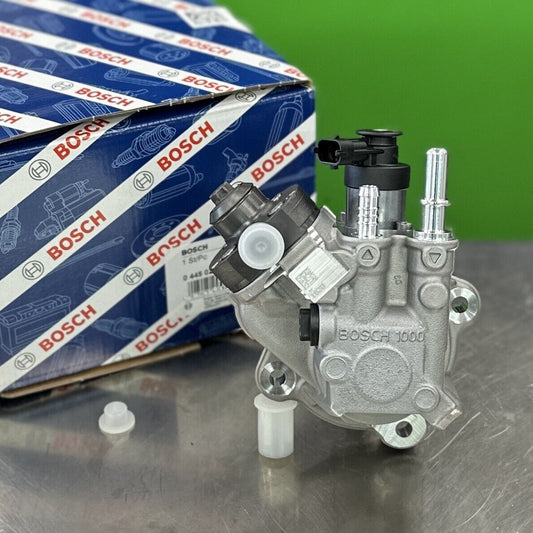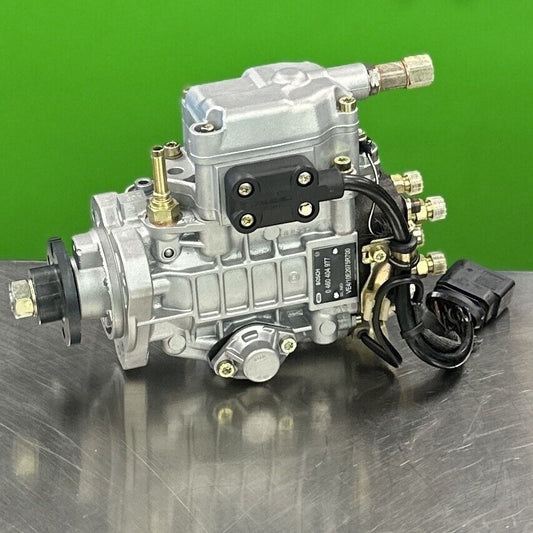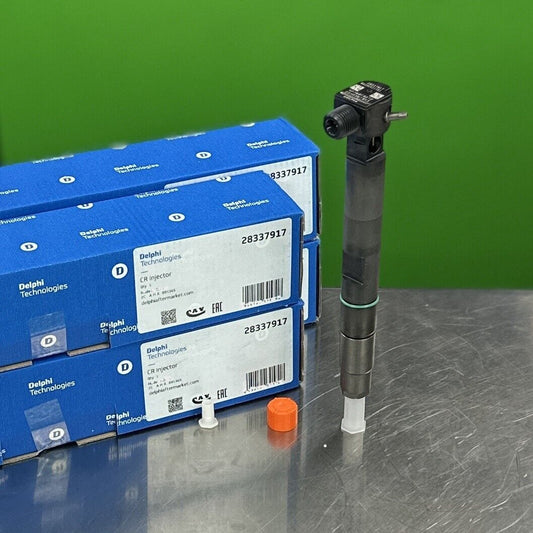Ford 6.0L 2003-04 HP Oil Pump Troubleshooting: Diagnosing and Solving Common Problems
When it comes to the Ford 6.0L 2003-04 HP engine, the oil pump plays a crucial role in ensuring proper lubrication and optimal engine performance. Without a functioning oil pump, the engine components would not receive the necessary lubrication, leading to increased friction, wear, and potential damage. Therefore, understanding how to troubleshoot and solve common oil pump problems is essential for maintaining the health of your vehicle.
Overview of Ford 6.0L 2003-04 HP Oil Pump
When it comes to the Ford 6.0L 2003-04 HP engine, the oil pump plays a crucial role in ensuring the smooth operation and longevity of the vehicle. Think of the oil pump as the heart of the engine, pumping vital lubricant to all the moving parts, preventing metal-on-metal contact, and reducing friction and heat. Without a properly functioning oil pump, the engine would suffer from inadequate lubrication, leading to increased wear and potential damage.
The Ford 6.0L 2003-04 HP oil pump is designed to maintain the optimal oil pressure within the engine, ensuring that all components are adequately lubricated. This is essential for preventing premature wear and tear, overheating, and potential engine failure. The oil pump works in conjunction with the oil filter to keep the engine clean and free from contaminants, further enhancing its performance and efficiency.
One of the key functions of the oil pump is to circulate oil throughout the engine, reaching critical areas such as the bearings, pistons, and camshaft. This continuous flow of oil helps to dissipate heat generated during engine operation, keeping temperatures in check and maintaining the engine's overall health. Without a functioning oil pump, these crucial components would be at risk of damage due to lack of lubrication and cooling.
In essence, the oil pump in the Ford 6.0L 2003-04 HP engine is like a silent guardian, working tirelessly behind the scenes to ensure that all parts are well-lubricated and protected. It is a vital component that should not be overlooked, as any issues with the oil pump can have serious consequences on the engine's performance and longevity. Regular maintenance and prompt attention to any signs of oil pump problems are essential to keep your Ford running smoothly and efficiently.
Signs of Oil Pump Issues
When it comes to the health of your Ford 6.0L 2003-04 HP engine, keeping a close eye on the signs of oil pump issues is crucial. These indicators can be the early warning signals that something is amiss with your vehicle's lubrication system. Ignoring these signs could lead to catastrophic engine failure and costly repairs down the road. So, what are the telltale signs that your oil pump may be experiencing problems?
One of the most common signs of oil pump issues is low oil pressure. This can manifest as a dashboard warning light, indicating that the oil pressure is below the recommended levels. Low oil pressure can lead to inadequate lubrication of engine components, resulting in increased friction and potential damage.
Engine knocking is another red flag that your oil pump may not be functioning correctly. The knocking sound is caused by metal components coming into contact due to insufficient lubrication. If you hear unusual noises coming from your engine, it's essential to address the issue promptly to prevent further damage.
Leaking oil is also a sign that your oil pump may be experiencing problems. Oil leaks can occur due to damaged seals or gaskets within the oil pump assembly. Not only does this lead to a loss of oil, but it can also create a mess under your vehicle and pose a safety hazard. Identifying and fixing oil leaks is crucial for maintaining the health of your engine.
Additionally, if you notice fluctuations in oil pressure while driving, it could indicate an issue with the oil pump. Inconsistent oil pressure can impact the overall performance of your engine and should be investigated promptly to prevent any potential damage.
Furthermore, excessive engine heat can also be a sign of oil pump problems. Inadequate lubrication can lead to increased friction and heat buildup, putting additional strain on the engine components. Monitoring the temperature gauge and addressing any overheating issues promptly is essential for preventing engine damage.
In summary, keeping an eye out for these signs of oil pump issues can help you diagnose problems early and prevent costly repairs in the future. If you notice any of these symptoms in your Ford 6.0L 2003-04 HP engine, it's essential to address them promptly through proper troubleshooting and maintenance.
Diagnostic Procedures
When it comes to diagnosing potential oil pump issues in your Ford 6.0L 2003-04 HP engine, a systematic approach is key. Let's dive into the step-by-step process of identifying and troubleshooting problems with the oil pump to ensure your engine's optimal performance and longevity.
1. Check Oil Pressure: One of the initial steps in diagnosing oil pump problems is to check the oil pressure. Utilize an oil pressure gauge to measure the pressure levels. Low oil pressure can be an indication of a failing oil pump, so it's crucial to monitor this closely.
2. Visual Inspection: Conduct a thorough visual inspection of the oil pump and surrounding components. Look for any signs of oil leaks, damage, or wear on the pump itself. Inspect the oil filter and oil pan for any debris or contaminants that could be affecting the pump's performance.
3. Listen for Engine Noise: Unusual engine knocking or ticking sounds can also point towards oil pump issues. Pay attention to any abnormal noises coming from the engine, as they could indicate a lack of proper lubrication due to oil pump malfunction.
4. Utilize Diagnostic Tools: In addition to manual checks, diagnostic tools such as a scan tool can provide valuable insights into the engine's performance. Scan for any error codes related to oil pressure or lubrication system malfunctions to pinpoint the root cause of the problem.
5. Inspect Oil Pump Components: If necessary, disassemble the oil pump to inspect its internal components. Look for signs of wear, damage, or clogs that could be impeding the pump's functionality. Pay special attention to the pump gears, pressure relief valve, and seals.
6. Perform Oil Flow Test: To further assess the oil pump's efficiency, conduct an oil flow test. This test will help determine if the pump is delivering an adequate amount of oil to lubricate the engine components properly. Any discrepancies in oil flow could indicate a problem with the pump.
By following these diagnostic procedures diligently, you can effectively identify and address any oil pump issues in your Ford 6.0L 2003-04 HP engine. Remember, early detection and prompt action are crucial in maintaining the health of your engine and preventing costly repairs down the road.
Common Oil Pump Problems
When it comes to the Ford 6.0L 2003-04 HP engine, the oil pump plays a crucial role in ensuring proper lubrication and smooth engine performance. However, like any mechanical component, the oil pump is susceptible to various issues that can hamper its functionality. Let's delve into some of the common oil pump problems that owners of this engine may encounter.
One prevalent issue that arises with the oil pump in the Ford 6.0L 2003-04 HP engine is worn-out components. Over time, the internal parts of the oil pump can experience wear and tear, leading to decreased efficiency in oil circulation. This can result in inadequate lubrication, potentially causing damage to engine components.
Another common problem is clogs within the oil pump. Dirt, debris, and sludge can accumulate inside the pump, obstructing the flow of oil. This can lead to a drop in oil pressure, which is detrimental to the engine's health. Regular maintenance and oil changes are essential to prevent clogs from forming.
Faulty seals are also a frequent culprit when it comes to oil pump issues. If the seals around the pump deteriorate or become damaged, oil leaks can occur. Not only does this result in oil wastage, but it can also lead to a drop in oil pressure, potentially causing engine overheating and other serious problems.
Moreover, improper installation of the oil pump can lead to performance issues. If the pump is not installed correctly or if the gaskets are not sealed properly, it can result in oil leaks or inefficient oil circulation. It is crucial to follow the manufacturer's guidelines when installing or replacing the oil pump.
Additionally, contamination of the oil supply can also impact the functionality of the oil pump. If foreign particles or contaminants enter the oil system, they can cause damage to the pump components, leading to decreased efficiency and potential pump failure. Regularly changing the oil and using high-quality filters can help prevent contamination issues.
It is important for owners of the Ford 6.0L 2003-04 HP engine to be vigilant about these common oil pump problems and address them promptly to avoid more significant issues down the road. Regular maintenance, timely repairs, and using quality oil and filters are key to ensuring the longevity and optimal performance of the oil pump and the engine as a whole.
Repair and Maintenance Solutions
When it comes to addressing oil pump issues in the Ford 6.0L 2003-04 HP engine, timely repair and maintenance solutions are crucial to ensure the smooth operation of your vehicle. Let's delve into some practical tips and strategies to troubleshoot and fix common oil pump problems effectively.
1. Regular Oil Changes:
One of the simplest yet most effective maintenance practices is to adhere to a regular oil change schedule. Fresh, clean oil helps lubricate the engine components and reduces the strain on the oil pump, promoting optimal performance.
2. Inspect and Replace Filters:
Regularly inspecting and replacing the oil filters is essential to prevent debris and contaminants from clogging the oil pump. A clogged filter can lead to decreased oil flow and pressure, compromising the engine's lubrication.
3. Check Oil Levels:
Monitoring the oil levels in your Ford 6.0L 2003-04 HP engine is vital to ensure that the oil pump has an adequate supply to circulate. Low oil levels can strain the pump and result in insufficient lubrication, leading to potential damage.
4. Address Leaks Promptly:
Any signs of oil leaks should be addressed promptly to prevent oil loss and maintain the proper functioning of the oil pump. Identifying and fixing leaks early can prevent more significant issues down the road.
5. Use High-Quality Oil:
Opt for high-quality, manufacturer-recommended oil to ensure optimal performance and longevity of the oil pump. Using the right type of oil can prevent premature wear and tear on the pump components.
6. Perform Regular Inspections:
Regularly inspecting the oil pump and related components can help identify potential issues early on. Look for signs of wear, damage, or leaks, and address them promptly to prevent further damage.
7. Consult a Professional:
If you encounter persistent oil pump issues or are unsure about the troubleshooting steps, don't hesitate to consult a professional mechanic. They can provide expert advice and assistance in diagnosing and repairing complex oil pump problems.
By following these repair and maintenance solutions, you can effectively troubleshoot and address oil pump issues in your Ford 6.0L 2003-04 HP engine, ensuring optimal performance and longevity of your vehicle.
```htmlFrequently Asked Questions
-
What are the common signs of oil pump issues in a Ford 6.0L 2003-04 HP engine?
Common signs of oil pump problems include low oil pressure readings on the gauge, engine knocking noises, or visible oil leaks. If you notice any of these symptoms, it is crucial to address the issue promptly to prevent further damage to the engine.
-
How can I diagnose oil pump problems in my Ford 6.0L 2003-04 HP engine?
Diagnosing oil pump issues typically involves using oil pressure gauges to measure pressure levels, conducting visual inspections for leaks or damage, and utilizing diagnostic tools to pinpoint the exact cause of the problem. It is recommended to consult a professional mechanic for accurate diagnosis and repair.
-
What are some common maintenance tips to prevent oil pump problems?
To maintain the health of your oil pump, regular oil changes using high-quality oil, checking oil levels frequently, and ensuring proper engine cooling are essential. Additionally, following the manufacturer's recommended maintenance schedule and promptly addressing any unusual engine behavior can help prevent major oil pump issues.



